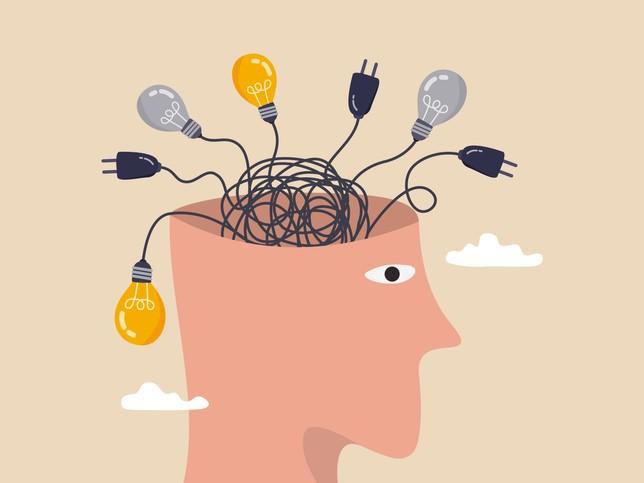
Struggle, strength and growth: preparing students for the changing future

You may also like
With digital transformation and structural changes in labour demand accelerated by the pandemic, higher education institutions increasingly strive to prepare graduates who can not only secure and succeed in one particular job but have the agility to move across jobs and sectors, continuously develop themselves to stay relevant, and embrace lifelong learning to flourish in all aspects of life.
It is more important than ever to nurture psychological resources and readiness within students to help them survive and thrive in times of uncertainty and complexity.
With this in mind, we developed a brief intervention programme that aimed to focus on the psycho-social-emotional aspects of personal and professional development. Through the lens of positive psychology and career construction, the goal was to empower students to recognise, appreciate and exercise internal strengths, and to embrace change as an important life skill that better prepares them for major life transitions, developmental challenges and career-related changes.
- Resource collection: How to fail well
- Adaptability is different from resilience – and here’s how to nurture it
- Socio-emotional learning online: boosting student resilience and well-being
Acknowledge that change is hard before embracing it
As educators, we must be sensitive to the fact that students can go through a whole range of transitional difficulties during and after their university years.
- School-university transition: The school-university transitions can coincide with a “loss experience” with feelings of psychological vulnerability and insecurity and identity distress.
- University-work transition: The experience of transition from student to employee can involve the navigation of new identities, which is psychologically demanding, irrespective of existing mental health conditions.
- Career-related transitions: Transitions don’t end when graduates leave university. Pre-pandemic, people tended to undergo several career transitions throughout their lives, planned and unplanned. Post-pandemic, these career-related changes are happening more frequently, and the ability to manage careers and have career adaptability skills is essential.
While change can invoke anxiety, distress and feelings of grief and loss, it can also inspire hope, creativity and growth. However, instead of pushing through anxiety and distress and taking the process of change for granted, manage students’ expectations and equip them with the skills and readiness to cope with challenging changes in life.
Create time and space for students to explore and acknowledge the confusion and anxiety that are sometimes inherent in change. Students can be encouraged to share the psycho-social-emotional aspects of being or becoming a “different person” – an independent student, a future employee, an individual developing as a professional and a lifelong learner.
Use hardships as opportunities to promote readiness and growth
Career choice and development are influenced by stressful life events and psychological trauma, which adversely affect educational and employment outcomes, work adjustment, risk of burnout, vocational identity and overall life opportunities. Highly stressful and traumatic events are not uncommon in the university population, research suggests. As many as 85 per cent of undergraduate students have experienced traumatic events at some point in their lifetime, one study showed.
Pain and suffering could create emotion locks that blind us from realising our authentic potential and limit our ability to make relevant career choices. Paradoxically, by addressing the emotional bondage with care and compassion, strength can grow out of struggle, facilitating resilience or even post-traumatic growth.
Here are strategies to incorporate trauma sensitivity and strength into teaching practice:
- It can be helpful to acknowledge that life is hard and the commonality of trauma across the student population.
- Encourage exploration of how life struggles could lead to post-traumatic growth in five areas: 1) greater appreciation of life with changed philosophies and priorities; 2) greater awareness and application of personal strengths; 3) strengthening of close relationships; 4) identification of new possibilities; and 5) a deeper spiritual and existential sense.
- Create opportunities to reflect on and share personal adversities, either verbally or in writing, which helps students contextualise, make sense of, reconstruct and re-author their life stories and experiences, thereby fostering a sense of agency and hope. Students can reinterpret the impact of personal adversity on major life decisions, clarify their individual needs and consider alternative choices to develop a career path towards self-actualisation.
- Described as a “trauma” or even a “collective trauma”, the pandemic has shattered our understanding of reality, creating distress, pain and loss. Discussions around its impact on students help normalise vulnerability and emotional processing, reframe adversity, and spur growth through the collective narrative and meaning.
When incorporating trauma sensitivity and strength into teaching, the following precautions are important:
- The sharing of personal hardships can be uncomfortable and scary and therefore should only be done when the individual is ready. The disclosure should be voluntary and carefully guided by some purpose, goal or aim.
- We should not prescribe growth so that the student feels that they ought to be experiencing growth, but rather to acknowledge growth as it occurs.
- The science of growth indicates that strengths grow out of the process of struggling and creating meaning from highly challenging life experiences, not the trauma itself.
Kathleen Chim is associate head of the Division of Health and Science; Lai Tsz Chui is a part-time research associate; and Benjamin Tak Yuen Chan is dean, all at Li Ka Shing School of Professional and Continuing Education, Hong Kong Metropolitan University.
If you would like advice and insight from academics and university staff delivered direct to your inbox each week, sign up for the Campus newsletter.


